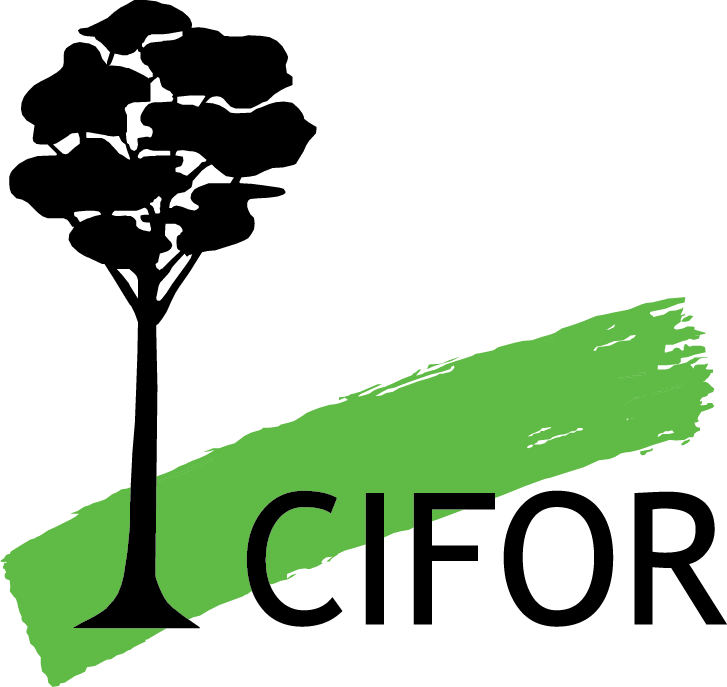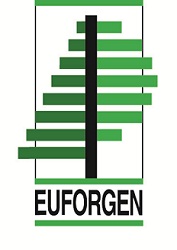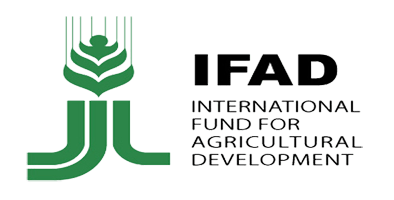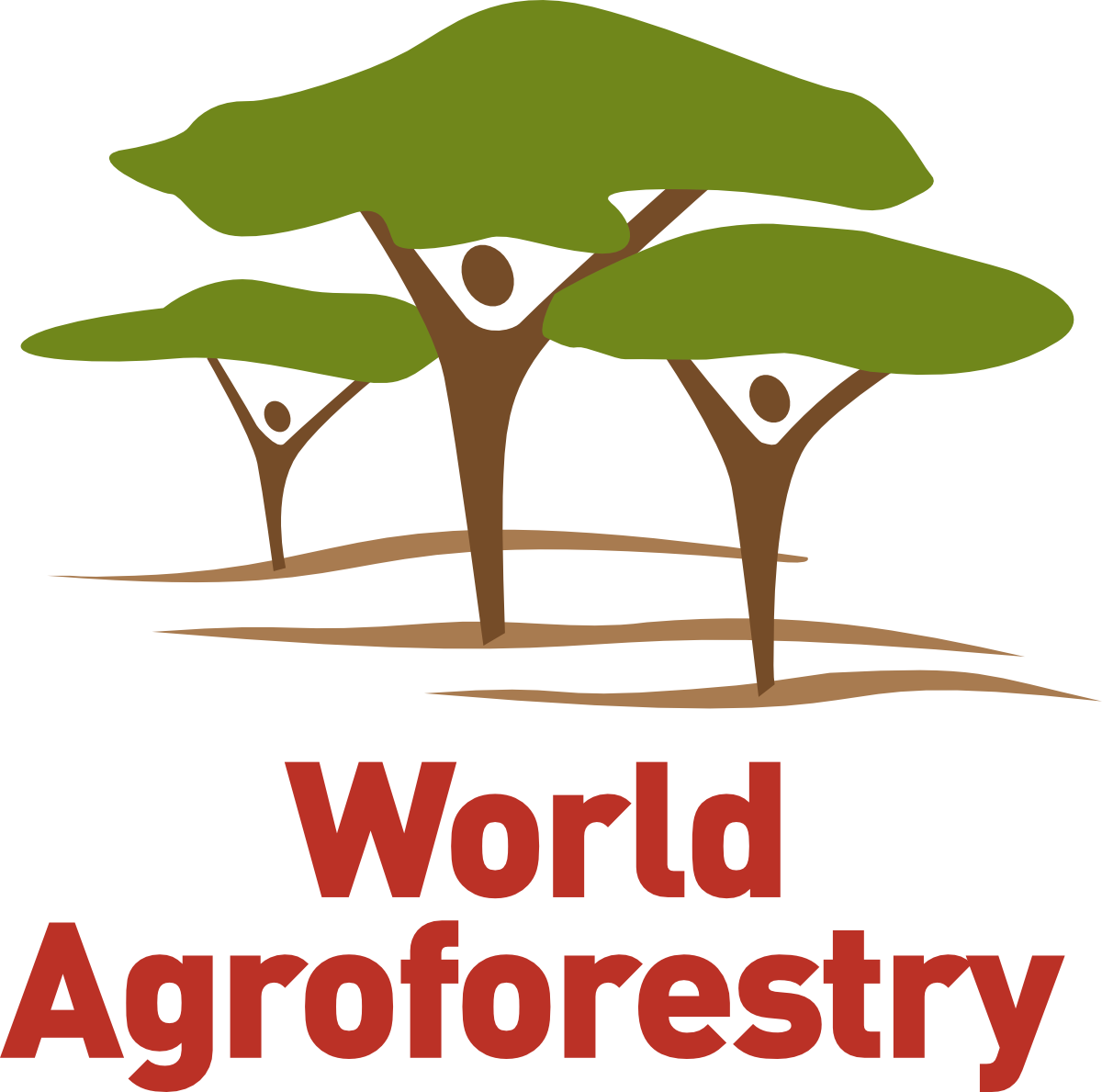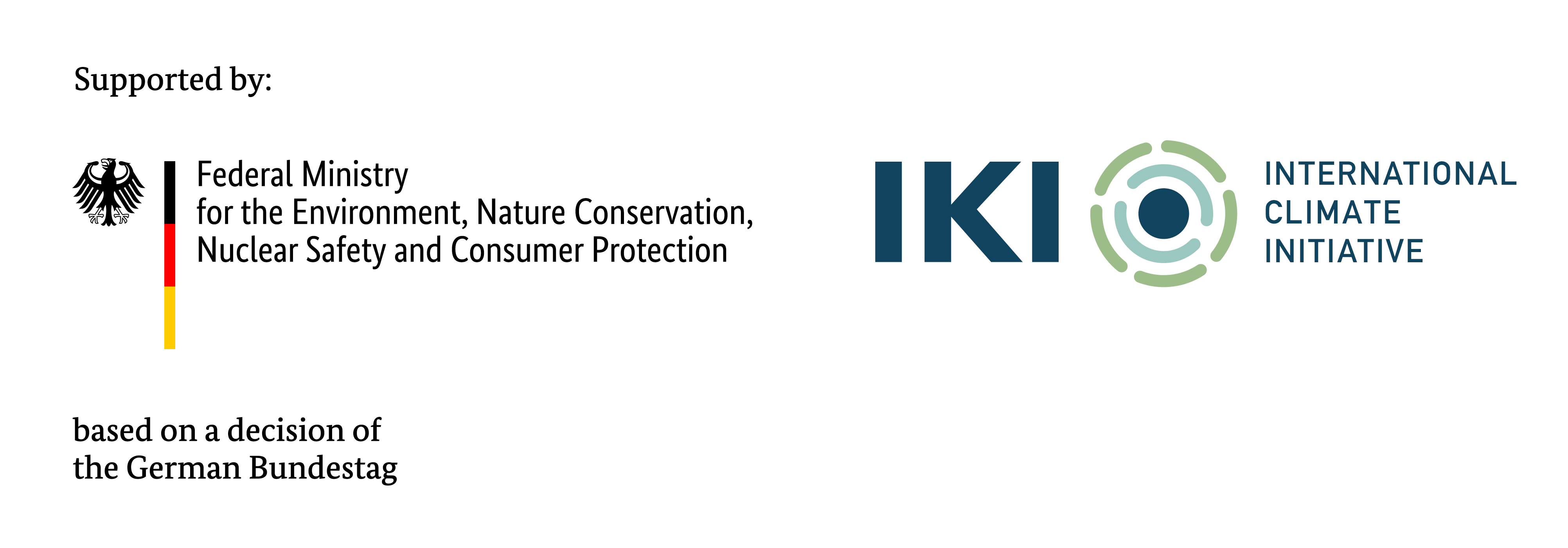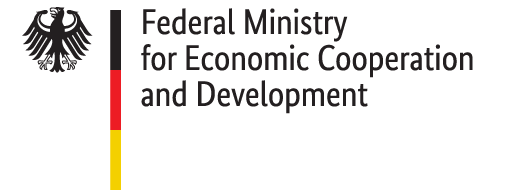Bonn time:
Agenda
Day 1: Tuesday, 19 December
Running throughout: Landscape Pavilions and Booths, Landscape Talks, Landscape Laboratories and Networking Opportunities
-
Wageningen Centre for Development Innovation, part of Wageningen Research with Center for International Forestry Research (CIFOR), Öko-InstitutMeasuring progress towards climate and development goalsNairobi 1 - 2
-
Hannes Böttcher
Senior Researcher and Head of the Land Use Group in the Energy and Climate Division
Oeko-Institut
-
Policies on conservation and land use and development: Ensuring rights are respected and achieving sustainable development for all | Livestream:RECORDEDThe Indigenous Peoples Major Group for Sustainable Development (IPMG SDGs) with Rights and Resources Initiative (RRI), International Land Coalition (ILC Afrika)Rights and equitable developmentWien 1 - 2
-
Stewart Maginnis
Global Director
Nature-based Solutions Group, International Union for Conservation of Nature (IUCN)
-
Smoke on water – Countering global threats from peatland loss and degradation | Livestream:RECORDEDGlobal Peatlands Initiative with UN Environment Programme (UNEP), Greifswald Mire CentreRestorationNairobi 3 - 4
-
Lera Miles
Team Lead
UN Environment World Conservation Monitoring Centre (UNEP-WCMC) UN-REDD Programme
-
Dr. Robert Nasi
Director General, CIFOR; Director of Science, CIFOR-ICRAF
-
Keynote speaker: H.E. Ameenah Gurib Fakim
President of the Republic of Mauritius
-
Barbara Hendricks
Federal Minister, German Federal Ministry for the Environment, Nature Conservation, Building and Nuclear Safety (BMUB)
-
Stefan Schmitz
Executive Director, Crop Trust
-
Erik Solheim
Executive Director, UN Environment
-
Karin Kemper
Global Director for the Environment, Natural Resources and Blue Economy Global Practice, World Bank
-
Andrew Steer
Head of Bezos Earth Fund, WRI
-
Roberto Borrero
Programs and Communications Coordinator, International Indian Treaty Council
-
Salina Abraham
Chief of Staff to CEO, CIFOR-ICRAF
-
Naoko Ishii
CEO and Chairperson, Global Environment Facility
-
Video address: Alec Baldwin
, Actor and Environmental Activist
-
Silvia Abruscato
Junior researcher in the Resilience Programme, European Forest Institute
-
UN Environment Programme (UNEP)Financing sustainable landscapes, Food and livelihoodsNairobi 1 - 2
-
CGIAR Research Program on Forests, Trees and Agroforestry (FTA) with International Union of Forest Research Organizations (IUFRO), Swedish International Agricultural Network Initiative (SIANI)Measuring progress towards climate and development goalsWien 1 - 2
-
Holger Hoff
Potsdam Institute for Climate Impact Research and Stockholm Environment Institute (SEI)
-
Vincent Gitz
Director of the Programme and Platforms Focal Point, Latin America
Center for International Forestry Research and World Agroforestry (CIFOR-ICRAF)
-
World Bank with PROFORLandscape Restoration, Food and Livelihoods, Measuring ProgressNairobi 3 - 4
-
Karin Kemper
Global Director for the Environment, Natural Resources and Blue Economy Global Practice
World Bank
-
Werner Kornexl
World Bank, PROFOR
-
Mohammad Rafi Qazizada
Director General of Natural Resource Management
Ministry of Agriculture, Irrigation and Livestock (MAIL) of Afghanistan
-
Anthony McKenzie
Director of Environmental Management and Conservation
National Environment and Planning Agency (NEPA)
-
-
Landscape restoration for food security and resilient livelihoods – Session 1: “Lessons learned from the ground” | Livestream:RECORDEDFood and Agriculture Organization of the United Nations (FAO) with World Bank, International Union for Conservation of Nature (IUCN), Center for International Forestry Research (CIFOR), World Resources Institute (WRI)Food and livelihoods, Landscape restorationNairobi 1 - 2
-
Mauro Agnoletti
Director of the Laboratory for Landscape and Cultural Heritage
University of Florence
-
Thelmo Muñoz Rodríguez
Autoridad de fiscalización y control social de bosques y tierras, Bolivia
-
Clement Chilima
Ministry of Natural Resources, Energy and Mining, Malawi
-
Saah A. David Jr
National REDD and Project Coordinator
Forestry Development Authority (FDA), Liberia
-
Marcelo Gabriel Cardozo Vacaflor
MINGA, Bolivia
-
Enhancing tenure security and gender equality in the context of forest landscape restoration | Livestream:RECORDEDWorld Bank with Program on Forests (PROFOR), Center for International Forestry Research (CIFOR), CGIAR Research Program on Forests, Trees and Agroforestry (FTA), CGIAR Research Program on Water, Land and Ecosystems (WLE), International Union for Conservation of Nature (IUCN)Rights and equitable development, Food and livelihoods, Landscape restorationNairobi 3 - 4
-
Steven Lawry
Senior Associate
Center for International Forestry Research Center for International Forestry Research (CIFOR)
-
-
Rare with Stockholm Environment Institute, Swedish International Agricultural Network Initiative (SIANI)Rights and equitable development, Food and Livelihoods, Landscape restorationWien 1 - 2
-
Sadhguru
Founder, Isha Foundation
In conversation with:Erik Solheim
Executive Director, UN Environment
-
Lina Dolores Pohl Alfaro
Representative of the Food and Agriculture Organization of the United Nations (FAO) in Mexico, Food and Agriculture Organization
-
Felipe Calderón
Former President of Mexico
-
Marcos Terena
Professor of Traditional and Spiritual Knowledge of the Indigenous People and Coordinator of the International Indigenous Forum on Biodiversity
-
Maria Margarida Ribeiro da Silva
Co-founder , Nossa Senhora do Perpétuo Socorro do Rio Arimum Agroextractivist Cooperative
-
Video address: Jacques Attali
Economic and social theorist, writer, political adviser and senior civil servant, Positive Planet; A&A
-
Anna (Ania) Madalinska
Co-founder, Agrofloresta Mesoamericana
-
Silvia Abruscato
Junior researcher in the Resilience Programme, European Forest Institute
Day 2: Wednesday, 20 December
Running throughout: Landscape Pavilions and Booths, Landscape Talks, Landscape Laboratories and Networking Opportunities
-
Opportunities and lessons learned to enhance and accelerate recognition of community land rights | Livestream:RECORDEDRights and Resources Initiative (RRI) with Center for International Forestry Research (CIFOR)RightsNairobi 3 - 4
-
Steven Lawry
Senior Associate
Center for International Forestry Research Center for International Forestry Research (CIFOR)
-
Elisabeth Hoch
Senior Advisor, Forests, Biodiversity, Agriculture
Department for Climate, Rural Development, Infrastructure, GIZ
-
The United Nations Convention to Combat Desertification (UNCCD) with Global Soil Week, Deutsche Gesellschaft für Internationale Zusammenarbeit (GIZ) on behalf of the Federal Ministry for Economic Cooperation and Development (BMZ)Rights and equitable development, Food and livelihoods, Landscape restorationWien 1 -2
-
Monique Barbut
Executive Secretary, United Nations Convention to Combat Desertification (UNCCD)
-
Mamadou Diakhite
Adviser to Director
Programme Implementation and Coordination Division (PICD) on Sustainable Land and Water Management (SLWM), NEPAD
-
-
TerrAfrica with New Partnership for Africa’s Development (NEPAD), World BankLandscape restorationNairobi 1 - 2
-
Mauro Agnoletti
Director of the Laboratory for Landscape and Cultural Heritage
University of Florence
-
-
Agroforestry in landscape restoration for livelihoods, climate and ecosystem services | Livestream:RECORDEDWorld Agroforestry (ICRAF) with Humanist Institute for Co-operation with Developing Countries (HIVOS), CGIAR Research Program on Forests, Trees and Agroforestry (FTA)Landscape restoration, Measuring progress towards climate and development goalsNairobi 3 - 4
-
Horst Freiberg
Restoration Expert
-
Building capacities for the restoration of tropical forest landscapes and the enhancement of their ecosystem goods and services | Livestream:RECORDEDInternational Union of Forest Research Organizations (IUFRO) with Center for International Forestry Research (CIFOR), International Tropical Timber Organization (ITTO)Landscape restorationNairobi 1 - 2
-
John Stanturf
Coordinator (Research Group on Restoration of Degraded Sites), Deputy Coordinator (Task Force on Forest Adaptation and Restoration under Global Change)
IUFRO
-
Martin Cremer
Deputy Head
Frankfurt School – UNEP Collaborating Centre for Climate & Sustainable Energy Finance
-
International Forestry Student Association (IFSA) with Young Professionals for Agricultural Development (YPARD), Climate Smart Agriculture Youth Network (CSAYN)Landscape restoration, Food and livelihoods, Measuring progress towards climate and development goalsWien 1 - 2
-
Federal Ministry for Economic Cooperation and Development (BMZ) with International Union for Conservation of Nature (IUCN), World Resources Institute (WRI), World Bank, New Partnership for Africa’s Development (NEPAD)Santiago de Chile
-
Mamadou Diakhite
Adviser to Director
Programme Implementation and Coordination Division (PICD) on Sustainable Land and Water Management (SLWM), NEPAD
-
Stewart Maginnis
Global Director
Nature-based Solutions Group, International Union for Conservation of Nature (IUCN)
-
Birgit Gerhardus
Head of Division
Rural Development, Land Rights and Forests of the German Federal Ministry for Economic Cooperation and Development (BMZ)
-
Dr. Robert Nasi
Director General, CIFOR; Director of Science, CIFOR-ICRAF
-
Hiroto Mitsugi
Assistant Director-General of Forestry Department , FAO
-
Marcos Terena
Professor of Traditional and Spiritual Knowledge of the Indigenous People and Coordinator of the International Indigenous Forum on Biodiversity
-
Charles Batte
Founder, Tree Adoption Uganda
-
Voré Gana Seck
President, GREEN SÉNÉGAL, Senior Advisor, CESE
-
Uwase Hirwa Honorine
Miss Earth Rwanda 2017
-
Scott Goodson
CEO and Founder , StrawberryFrog
-
Indicators and scalability of successful land restoration initiatives at the watershed scale | Livestream:RECORDEDCGIAR Research Program on Water, Land and Ecosystems (WLE) with International Center for Tropical Agriculture (CIAT) - old, International Water Management Institute (IWMI)Landscape restorationWien 1 - 2
-
Julie van der Bliek
Director
Partnerships & Knowledge Management at the International Water Management Institute (IWMI)
-
Landscape restoration for food security and resilient livelihoods – Session 2: “The way forward” | Livestream:RECORDEDFood and Agriculture Organization of the United Nations (FAO) with World Bank, International Union for Conservation of Nature (IUCN), Center for International Forestry Research (CIFOR), World Resources Institute (WRI)Food and livelihoods, Landscape restorationNairobi 1 - 2
-
Mauro Agnoletti
Director of the Laboratory for Landscape and Cultural Heritage
University of Florence
-
-
Forest landscape restoration: Ambitious commitments and challenging practice – the role of financing | Livestream:RECORDEDKfW Development Bank on behalf of the Federal Ministry for Economic Cooperation and Development (BMZ)Landscape restorationNairobi 3 - 4
-
Birgit Gerhardus
Head of Division
Rural Development, Land Rights and Forests of the German Federal Ministry for Economic Cooperation and Development (BMZ)
-
-
Dr. Robert Nasi
Director General, CIFOR; Director of Science, CIFOR-ICRAF
-
Elsa Nickel
Head of the Department of Nature Conservation and Sustainable Nature Development , BMUB
-
Gabriele Klingmüller
Deputy Mayor of Bonn
-
Joan Carling
Co-convenor, Indigenous Peoples Major Group for the SDGs
-
Hiroto Mitsugi
Assistant Director-General of Forestry Department , FAO
-
Maulline Gragau
Co-founder, Tazanna
Day 1: Tuesday, 19 December
WRI’s new report, Roots of Prosperity: The Economics and Finance of Restoring Land, aims to help governments and other decision-makers to leverage financial resources and develop effective policy to scale up forest and landscape restoration. The report draws on research and case studies from around the world, revealing that restoring degraded land has the potential to deliver up to thirty times the initial investment in benefits. It discusses the seven barriers to finance for restoration and outlines policies and financial mechanisms that will unlock capital.
Press release
The International Union for Conservation of Nature (IUCN) will release the Barometer Spotlight Report 2017, a new report tracking progress on an ambitious global effort to bring 150 million hectares of degraded and deforested land into restoration by 2020 and 350 million hectares by 2030. The report provides a snapshot of progress on the Bonn Challenge, with an emphasis on efforts underway in Brazil, El Salvador, Mexico, Rwanda and the United States.
Launch of the IUCN Bonn Challenge Barometer of Progress Spotlight Report 2017
Launch of the IUCN Bonn Challenge Barometer of Progress Spotlight Report 2017 – Run of Show
Presentations (PDFs):Radhika Dave,Felix Rurangwa,Leslie Weldon,
Day 2: Wednesday, 20 December
The field of forest landscape restoration (FLR) is quickly gaining traction now that national commitments to restore degraded lands under the 2011 Bonn Challenge have reached upwards of 160 million ha. While the growing literature on FLR and associated methodologies being proposed emphasizes the importance of including stakeholders in decision making and implementation, local communities in hilly and mountainous regions often face particular challenges. The papers in this Special Issue of the International Forestry Review shed light on some of the approaches incorporated in FLR design and its outcomes in cases from China, Ethiopia, India, Nepal, Thailand, and Vietnam. These include direct subsidies or PES, land distributions and devolution of resource rights, engagement of communities in participatory management, and other approaches. Taken together, the studies in this Special Issue bring together a range of insights into the diversity of approaches favouring the implementation of FLR, particularly in sloping landscapes, under varying social and ecological conditions.
Resources
https://www.ingentaconnect.com/content/cfa/ifr
Authors: E. BIRHANE; T. MENGISTU; Y. SEYOUM; N. HAGAZI; L. PUTZEL; M. MEKONEN RANNESTAD; H. KASSA
Appeared or available online: November 9, 2017
Authors: P.R. NEUPANE; A. GAULI; T. MARASENI; D. KÜBLER; P. MUNDHENK; M.V. DANG; M. KÖHL
Appeared or available online: November 9, 2017
Authors: K. PAUDYAL; H. BARAL; L. PUTZEL; S. BHANDARI; R.J. KEENAN
Appeared or available online: October 25, 2017
Developers of landscape projects have a hard time conveying complex project stories in a compelling way. The ProjectExplorer integrates cutting-edge presentation technologies to tell the story on an interactive web map with up-to-date project information like georeferenced multimedia elements, such as 360° aerial panoramas, pictures, and videos. The accessibility of information and the spatial context create a new level of transparency.
German Pavilion
The “German Pavilion” will provide an overview of major initiatives supported by the German Government covering the themes of rights based approaches, spatial approaches and landscape restoration as well as measuring progress towards climate and SDG’s. Major initiatives portrayed in the pavilion are SEWOH (One World – No Hunger) and the German IKI (International Climate Initiative). Other international initiatives supported by Germany such as AFR 100 (African Forest Landscape Restoration Initiative) and the Bonn Challenge will be featured as well. Funding for all showcased initiatives in the German Pavilion comes from the German Federal Ministry of Economic Development and Cooperation (BMZ) and/or the German Federal Ministry for the Environment, Nature Conservation, Building and Nuclear Safety (BMUB).
The pavilion will demonstrate Germany’s full commitment to the vision of the global landscapes forum, which is reflected in its active support to the work of the Forum as well as via a broad variety of landscape related projects on the ground.
- Media release: Global Landscapes Forum 2017 German Pavilion – “Sustainable Landscapes” WCCB, 19-20th December 2017. Download PDF
- German Pavilion Mini-sessions: December 19. Download PDF
- German Pavilion Mini-sessions: December 20. Download PDF
Inclusive Landscapes Finance Pavilion
Join us at the Inclusive Landscapes Finance Pavilion throughout GLF for engaging discussions on all aspects of landscapes finance.
Hosted by the Landscapes for People, Food and Nature Initiative, this pavilion will advance discussion, collaboration and partnerships around the topics of inclusive landscape investment models, how good governance and landscape finance are connected, finance and investment coordination at the landscape level, and innovative new financing mechanisms to support integrated landscapes.
Make connections that will help you make investments that deliver financial, social and environmental returns in partnership with local people. Learn about tools and support that can help you access the right types of finance for your landscape’s goals. Find out more about research, programs and projects that support inclusivity in landscape investment. Discover how to get started in your own institution or landscape, and who can help.
Indigenous Peoples Pavilion
There will be three sessions consisting of a brief video presentation, panel presentations and interactive discussions with participants.
1. Our Heritage, our Future: Indigenous peoples’ water management systems
Indigenous peoples have been practicing sustainable water management systems, not only for their daily needs and livelihoods but also for the profound spiritual values of water. However, indigenous peoples are facing serious threats in sustaining these practices including their rights to water and livelihoods due to fracking, extractive activities, among others. indigenous peoples in coastal areas continue their traditional fishing practices and related conservation of corals and marine resources. Indigenous leaders from North America and the Pacific will share their experiences and will highlight the need to protect indigenous peoples’ water management systems in relation to their livelihoods, cultures and other collective right. Other speakers are invited to share their work and reflections on this critical issue, and there will be interactive discussions of ways forward to protect the water rights and sustainable water and resource management systems of indigenous peoples in the context of climate change and the 2030 Agenda on Sustainable Development.
2. The role of Pastoralism in achieving SDGs under a Landscape approach
The session will include the analysis and presentations on the role of pastoralism as a viable livelihood system across significant landscapes in Africa, Asia, Russia and parts of northern America and Europe in the advancement and implementation of the SDGs with local contexts and perspectives will be shared and discussed. The event will also highlight national and regional policy actions that need to be reinforced within the GLF framework to reflect most intimately the significant contribution of pastoralism to the economies of countries as well as the challenges experienced especially related to trans-boundary concerns on mobility that is a copying strategy critical for the survival of the livelihood system. The recognition of the practice at global level arrangements is still low and this event will help raise the profile of pastoralism within the GLF processes.
3. Rights and Livelihoods under threat: Sustainable Agroforestry practices of indigenous peoples for food security and biodiversity
Millions of indigenous peoples South and Southeast Asia, South and Central America continue to persist in practicing the centuries-old system of shifting cultivation or rotational agriculture as a form of sustainable agro-forestry. It is linked to their distinct cultures, and a major source of food security and the conservation of forest biodiversity. In fact, 80 % of the forest biodiversity are found in indigenous peoples. However, it is considered as a main driver of deforestation and forest degradation. On one hand, Existing policies and regulations thereby continue to criminalize this practice, resulting to arbitrary arrest and detention, payment of penalties, hunger, loss of traditional knowledge among others. On the other hand, the conversion of forest lands to logging and mining concessions, agribusiness and others is taking place on a massive scale and with impunity in violation to the rights of indigenous peoples to their lands, territories and resources, to their livelihoods and cultural heritage. Even in the context of REDD+, the implementation of the readiness phase fails to ensure forest land tenure for indigenous peoples and the protection of their sustainable forest management system in many countries as critical in forest conservation and management for climate changes.
This session will address policy issues in relation to forest conservation, as well as the respect for indigenous peoples’ rights in the context of threats, challenges, opportunities and ways forward. Speakers will be indigenous representatives, advocates, donors and research/academic institutions. There will be an interactive discussion with participants of this session.
Topics:
- Traditional water management systems
- Pastoralism and Livestock enhancement
- Shifting cultivation/rotational agriculture
- Traditional fishing
Development Solutions Pavilion
Join a wide range of host organizations in this Pavilion designed to highlight innovative and unique solutions to global development challenges. From land rights campaigning to sustainable ecosystem management to integrated conservation and livelihood approaches, these organizations and solutions are tackling pressing global problems head-on and sharing their solutions to engender sustainable and equitable landscapes with the GLF audience.
Resources:
Topics:
- Primary forests & ecosystem services
- Sustainable ecosystem services management: Tackling poverty and enriching human wellbeing
- Building up momentum with the Land Rights Now campaign
- Realizing sustainable landscapes - J-REDD, supply chain transparency, implementing programs at the landscape level
- Landscape restoration at the national level
- Innovative IDEAS on Climate Smart Agriculture (CSA) with achieving the Agenda 2030 for Sustainable Development in local languages
Restoration Pavilion
The Global Partnership on Forest Landscape Restoration (GPFLR) confronts the world-wide problem of deforestation through its global network of grassroots level practitioners and supporters. As a “think and do tank” the GPFLR acts as a nexus of coordination in the effort to fulfil the Bonn Challenge to restore 350 million hectares of deforested land 2030. With a track record of high-level events showcasing cutting-edge research and ground-breaking initiatives, the GPFLR’s Restoration Pavilion will bring forward decision-makers from the local, national and international level to drive a diverse agenda ranging from Natural Regeneration, integration of forest resources, monitoring, capacity building and regional schemes such as AFR100 and Initiative 20×20.
Topics:
- Natural Regeneration (including FMNR) and Biodiversity Conservation in Restoration
- Capacity building, training & education for landscape restoration
- Bonn Challenge
- Regional Initiatives, including AFR100 and Initiative 20x20
- Measuring, monitoring and assessment of progress
- Working landscapes: LUP and governance, gender and migration; transforming rural economies (including producers’ organizations, value chains, people’s participation, etc)
- Integrating forest genetic resources for resilient restoration
Day 1: Tuesday, 19 December
Landscape Talks Block 2 - 14:00-15:30 | Livestream: RECORDED
-
-
-
Adrian Martin
Professor of Environment and Development
School of Economic Development, University of East Anglia
-
-
-
-
Landscape Talks Block 3 - 16:00-17:30 | Livestream: RECORDED
-
-
-
-
Christopher Eves
Zoological Society of London
-
-
-
Laure d’Astorg
French Alliance for Sustainable Palm Oil
-
-
-
GLF Bonn 2017- Landcape Talk – Day 2: Wednesday, 20 December
Landscape Talks Block 2 - 11:00-12:30 | Livestream: RECORDED
-
-
Tasso Azevedo
Coordinator MapBiomas & SEEG initiatives, former Chief
MapBiomas, Brazilian Forest Service
-
-
-
-
-
Roberta Iley
Co-author of the joint PwC – Climate Development Knowledge Network paper
PricewaterhouseCoopers, Sustainability & Climate Change team
-
-
Landscape Talks Block 3 - 16:30-18:00 | Livestream: RECORDED
-
-
New York
-
-
-
Pierre Kruger
Nomad Lodges
-
-
-
Tracing the life of an avocado from Amsterdam to Mexico
-
John Colmey
Senior Strategic Adviser and Co-Founder, Global Landscapes Forum
Senior Director, CIFOR-ICRAF
-
Day 1: Tuesday, 19 December
Representatives of the German government (BMZ, BMUB) will join leaders from UN Environment, the World Bank and the Center for International Forestry Research (CIFOR) to announce the launch of a five-year partnership with the Global Landscapes Forum (GLF), the world’s largest sustainable development platform involving all sectors (government, NGOs, private sector, civil society, media, youth, indigenous people).
Speakers will include Barbara Hendricks, Federal Minister, Federal Ministry for the Environment, Nature Conservation, Building and Nuclear Safety (BMUB), Germany; Dr. Stefan Schmitz, Deputy Director General, Ministry for Economic Cooperation and Development (BMZ), Germany; Erik Solheim, Executive Director, UN Environment; Karin Kemper, Senior Director for the Environment and Natural Resources Global Practice, World Bank and Robert Nasi, Director General, Center for International Forestry Research (CIFOR).
The press conference is scheduled to take place at the World Conference Center Bonn, Platz der Vereinten Nationen 2, 53113 Bonn on December 19 at 12:30 p.m., on the first day of the two-day Global Landscapes Forum. The event will be covered by international media and live-streamed through a number of media outlets
GLF Bonn 2017 – Press Conference – Day 2: Wednesday, 20 December
The Collaborative Partnership on Forests (CPF) launched the first Wangari Maathai Award in 2012 to recognize the impact of this extraordinary Nobel Prize laureate from Kenya who championed forest issues in her country and globally. In 2017, the CPF will award another individual for her/his outstanding achievements for forests. The winner will receive a cash prize of USD 20,000 along with international recognition of the outstanding contributions to preserve, restore and sustainably manage forests and to raise awareness of the key role forests play in supporting local communities, rural livelihoods, women and the environment.
This year’s Wangari Maathai Award Ceremony will be held on December 20 at 2:30 p.m. The ceremony will be hosted by the Food and Agriculture Organization (FAO) at the Global Landscapes Forum held at the World Conference Centre in Bonn. Mr. Hiroto Mitsugi, Assistant Director-General FAO of the United Nations will address the audience on this occasion, after which the announcement of the winner will be made.
Nominations will be reviewed by an international jury of renowned personalities, who will take into consideration key elements like empowering women, youth and civil society; fostering social commitment; promoting networks; and improving the valuation of forests in society.
A press conference will be held immediately after the announcement.















